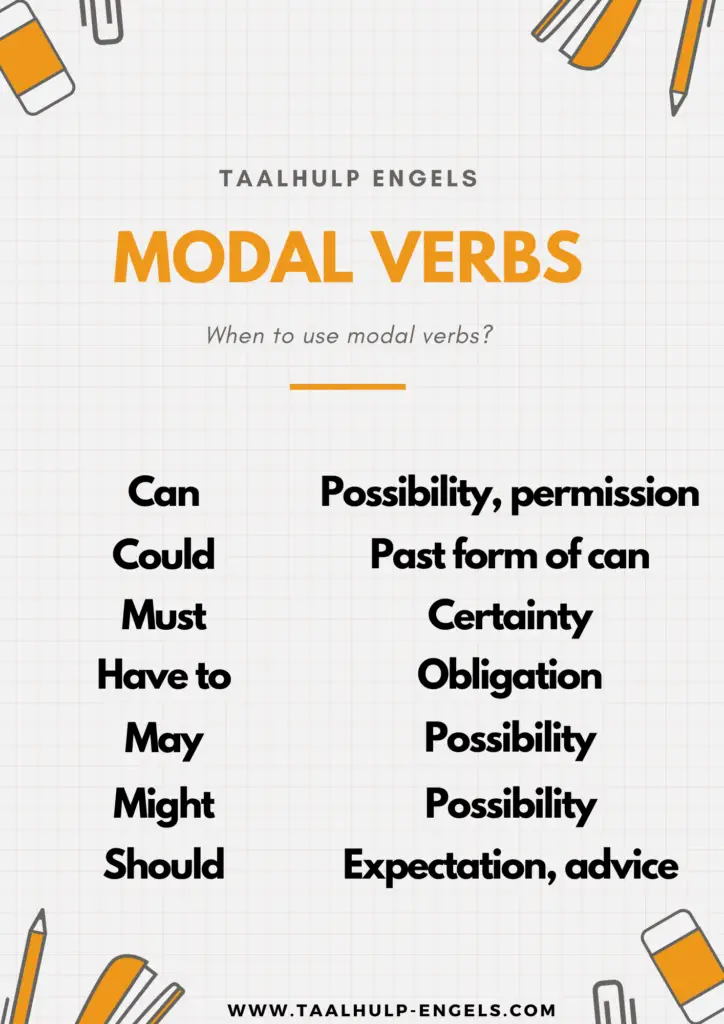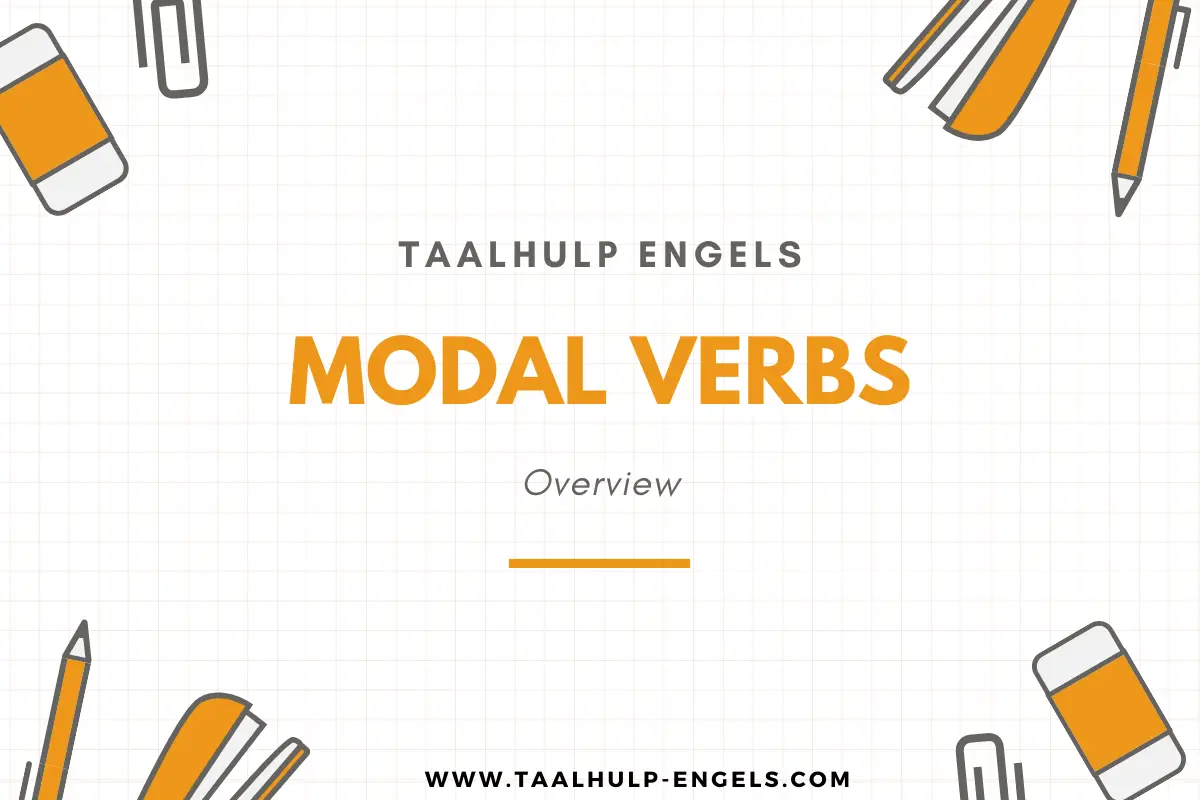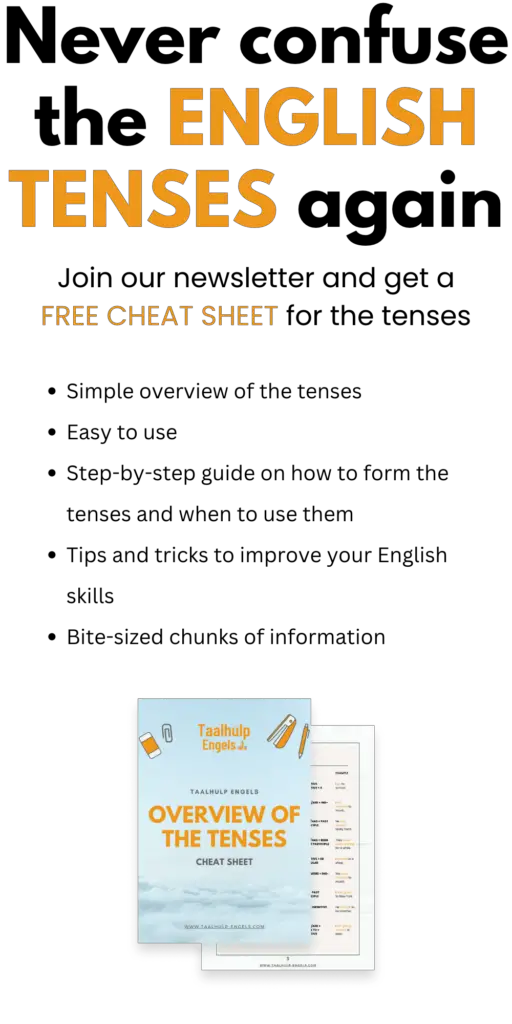Modal verbs in English are a type of auxiliary verb. These verbs are important in English because you can use them to indicate the modality of the main verb. Depending on which modal verb you use, the meaning of the sentence changes.
On this page, you have a complete overview of what modal verbs are, why you use them, and also some examples.

What are modal verbs?
Modal verbs are auxiliary verbs to give extra meaning to the main verb. They don’t have an infinitive and you always use them in the same form. This means that you don’t add an ‘s’ in the third person singular.
After a modal verb, you always put a bare infinitive; so an infinitive without ‘to’. The most common modal verbs in English are:
can, could, must, have to, may, might and should

Meaning of modal verbs
Modal verbs change the meaning of a sentence. They all have different meanings so you use them in different situations.
Can
Can is used to say when something is possible or when it’s allowed. It can also be used when someone has the ability to do something.
The negative form of can is can’t and is used when someone lacks the ability to do something, when something is not possible or when it’s not allowed. The full form of can’t is cannot. Take a look at the examples below:
| Examples |
|---|
| I can speak 5 languages. |
| I can’t go to the party. |
| He can’t read. |
| We can listen very well. |
Could
Could is mostly used as the past form of can. It’s commonly used with the following verbs: hear, smell, see, taste, feel and remember.
| Examples |
|---|
| Could I go outside, please? |
| We could see the lake. |
| They could do what they wanted. |
| I could smell alcohol. |
Must
Must can be used to express certainty. If you’re certain something is impossible, you use can’t.
| Examples |
|---|
| They haven’t lived here for very long so they can’t know many people. |
| You have been walking all day so you must be tired. |
Must can also be used when expressing your opinion about something that you think is appropriate in a particular situation.
| Example |
|---|
| I haven’t seen her for ages so I must call her. |
Have to
Have to is used when you are required to do something; when it’s an obligation or when it’s necessary.
| Examples |
|---|
| I have to wear glasses for reading. |
| You can’t go left here so you have to go right. |
May and might
May and might are used interchangeably because there is only a slight difference in meaning. You use these modal verbs when something is possible.
| Examples |
|---|
| It might be true. |
| She might know. |
The negative forms are may not and might not.
| Examples |
|---|
| It might not be true. |
| She might not know. |
In the past, you use may have (done) and might have (done).
| Example |
|---|
| He might have been poor. |
Should
Should is commonly used to give advice or to express an opinion.
| Examples |
|---|
| You should call her. |
| He should go to bed early. |
You can also use should to talk about something unexpected or something that doesn’t seem right.
| Examples |
|---|
| She should be here by now. |
| I should already be a millionaire. |
Should is also used to talk about expectations.
| Example |
|---|
| She is smart so she should pass the exam. |
If you want to use should in the past, you use should (not) have … This is used to talk about something that you didn’t do and regret that you didn’t do it. It can also be used when you did something and regret it.
| Examples |
|---|
| I should have gone to the party. |
| He should not have stolen money. |
Modal verbs overview
| Modal verb | Use | Example |
|---|---|---|
| Can | Possibility Permission Ability | I can speak Chinese. You can use your phone in class. |
| Can’t / cannot | Impossibility Inability | He cannot read. They cannot talk to each other. |
| Could | Past form of can, usually in combination with: hear, smell, see, taste, feel and remember | I could smell gasoline. We could see Mount Everest. |
| Must | Certainty | He must be old. |
| Have to | Obligation | You have to be on time. |
| May | Possibility | They may trick us into buying something. |
| Might | Possibility | We might be lucky today. |
| Should | Advice Expectations | They should save some money for when they want to buy a house. |


Exercises
- Can or Can’t Exercise 1
- Can or Can’t Exercise 2
- Can or Can’t Exercise 3
- Can or Can’t Exercise 4
- Can or Can’t Exercise 5


